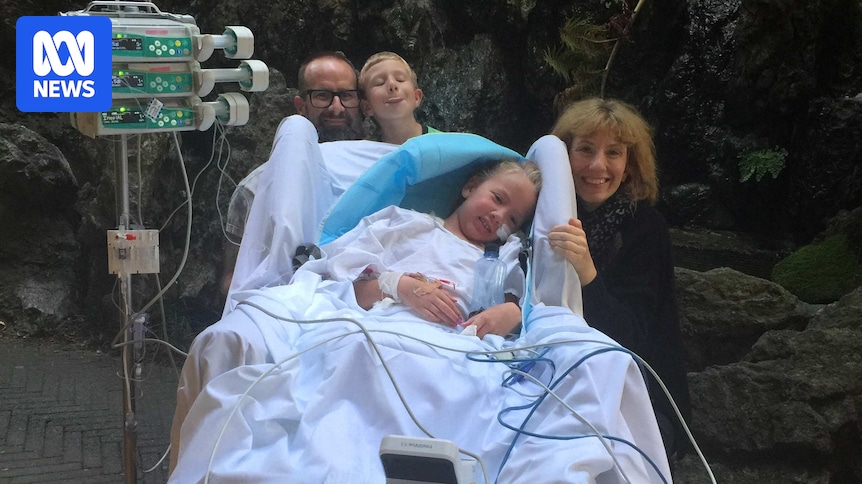
After missing her flu vaccine for just one year, Millie Campbell found herself fighting for her life. The then-eight-year-old contracted influenza B in 2019, and what began as aches and pains in her legs escalated to multiple organ failure.
“They had to drain 200 millilitres of fluid from her heart — it was struggling,” her mother, Stephanie Campbell, recounted. “I think the doctor’s words were ‘your daughter could die tonight’.”
Millie’s parents were faced with the terrifying prospect of losing their child. She was airlifted from Newcastle to Westmead Children’s Hospital in Sydney, where she soon went into cardiac arrest. “It was very, very surreal, it actually felt like at the time it wasn’t happening,” said her father, Ian Campbell.
Influenza B’s Impact on Children
Millie’s case is a stark reminder of the potential severity of influenza B, particularly in children. This year, Australia has seen a significant increase in influenza B cases, especially among children aged five to 16 years old, despite influenza A being the more common virus type.
Influenza A and B present similarly, but type B can be more severe in children. The influenza vaccine includes two strains of the A virus and two of the B. However, awareness about influenza B is often lower compared to influenza A, which is typically associated with pandemics.
“[Influenza B] often gets a reduced awareness compared to influenza A, probably because A is normally associated with pandemics,” said Patrick Reading, director of the World Health Organization Collaborating Centre for Reference and Research on Influenza.
Challenges in Vaccination Uptake
Flu vaccination rates have been declining since the COVID-19 pandemic, with the five to 16-year-old age group now having the lowest vaccination uptake. This decline in immunity is putting increased pressure on the health system, with experts warning of potential worsening conditions.
“We see elevated [influenza] circulation throughout August, September, and October, so it’s definitely not too late to get vaccinated,” Professor Reading advised.
Confusion Over Vaccine Recommendations
Millie’s parents, who had been diligent about vaccinations, believed their daughter was less at risk once she was over the age of five. Under the National Immunisation Program (NIP), influenza vaccines are free for children aged between six months and five years old. However, outside this age group, the vaccine costs approximately $25 and becomes free again for those 65 and over.
This age restriction may be confusing to some, according to Julie Leask, a social scientist specializing in vaccination and infectious disease prevention.
“I don’t think the risk-based strategy is working well for Australia,” Professor Leask said. “When the vaccine is on the [NIP], it’s a real signal to people that this vaccine is important and it’s also a signal to health professionals to recommend the vaccine.”
The Call for Universal Free Vaccination
Professor Leask advocates for making the flu vaccine free for everyone aged six months and over, arguing it would simplify communication and increase uptake. However, the Pharmaceutical Benefits Advisory Committee has previously rejected applications for a universal free flu vaccine, citing cost-effectiveness concerns.
Research indicates that common reasons for not vaccinating children include a lack of awareness about vaccine recommendations, healthcare providers not recommending it, busy lifestyles, cost, and safety concerns. Additionally, anti-vaccine rhetoric has complicated the issue further.
Millie’s Journey and Advocacy
Despite the challenges, Millie’s story has a positive turn. Now 14, she has a prosthetic left leg and has become a competitive swimmer, winning multiple gold medals at national championships and setting her sights on the 2028 Paralympics in Los Angeles.
Her parents remain concerned about the changing attitudes towards vaccination in Australia. “This growing hesitancy seems to be driven by the inability of people to decipher between evidence-based information and misinformation on social media,” Mr. Campbell observed.
He urged people to consult health experts, emphasizing that vaccination benefits both individuals and the community. Millie’s experience serves as a powerful reminder of the importance of vaccination and the potential consequences of neglecting it.







